Imprisoned Nobel Laureate Denied Healthcare Over Hijab Refusal
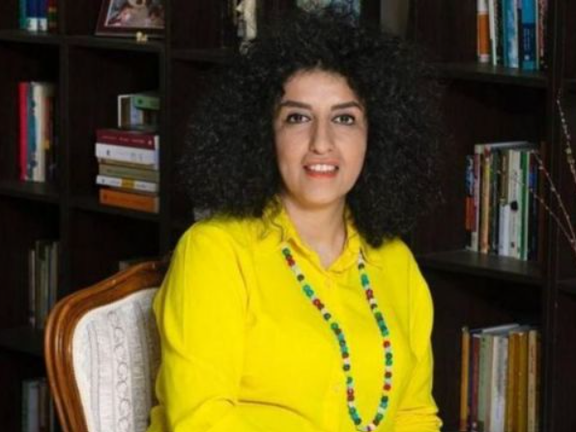
Narges Mohammadi, an Iranian human rights activist and the Nobel Peace Prize laureate for 2023, has been refused hospital treatment for refusing to wear a hijab.

Narges Mohammadi, an Iranian human rights activist and the Nobel Peace Prize laureate for 2023, has been refused hospital treatment for refusing to wear a hijab.
Alieh Motallebzadeh, a civil activist and women's rights advocate, said Mohammadi was refused treatment for a second time on Monday on grounds that she is not following mandatory state laws over wearing the hijab.
Motallebzadeh said: "Unfortunately, Narges Mohammadi's health is not good; her heart veins are blocked, and she needs angioplasty. However, authorities have refused to transfer her to a medical facility because Narges steadfastly refuses to wear the headscarf."
Mohammadi, a vocal advocate for women's rights and a key figure in the Women, Life, Freedom protests, has consistently expressed her opposition to compulsory hijab in Iran.
In recent months, Mohammadi, 51, has written multiple letters from Evin Prison, where she has been confined since November 2021, serving a twelve-year sentence on charges that include "propaganda against the Islamic Republic." She has consistently refuted the allegations which were levied against her following her public stance against the death penalty.
Mohammadi, who serves as the co-founder and chairperson of the Defenders of Human Rights Center, has experienced detention and imprisonment on several occasions throughout the last twenty years.
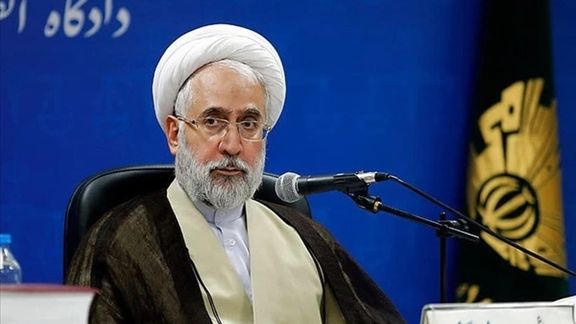
Iran’s Attorney General has officially designated any action promoting, strengthening, or supporting Israel online illegal.
The decision also encompasses providing services to platforms associated with Israel and facilitating the travel of Iranian citizens to the country through online means.
The Law on “Confronting Hostile Actions by the Zionist Regime Against Peace and Security”, was submitted to the parliament and approved during an open session in 2020. The legislation was recently updated by the Committee for Determining Instances of Criminal Content.
The update also “extends to any collaboration, interaction or exchange of information with both official and unofficial entities and individuals affiliated with the Israeli regime.”
The legislation reflects Iran's long standing stance as an opponent of Israel, whose destruction it has called upon for decades, reversing the good relations the countries shared before the revolution of 1979.
Iran has historically barred its athletes from competing against Israeli counterparts, leading to athletes intentionally losing games, forfeiting matches, or claiming injury under pressure from sports federation officials to avoid facing Israelis.
Supreme Leader Ali Khamenei has consistently lauded Iranian athletes who refuse to compete against Israelis and as recently as September 2021, encouraged them to persist in their stance, even if facing potential repercussions from international sports governing bodies.
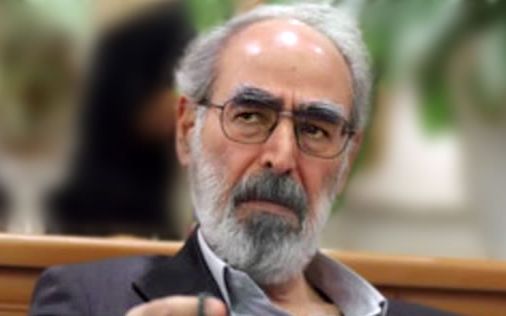
Abolfazl Qadiani (Ghadiani), an outspoken opponent of Iran's Supreme Leader Ali Khamenei has condemned the murder of Armita Geravand.
He stated that the murder of the teenage girl adds another dark chapter to the already troubling record of Khamenei.
Qadiani asserted, "The murder was committed by the hijab enforcers of Khamenei, the power-hungry ruler of Iran. Armita has now joined Mahsa Amini."
Armita, 16, fell into a coma following an encounter with hijab enforcers in the Tehran subway. Despite the government's efforts to obscure the details, it appears that she was pushed by a female agent, resulting in a severe head injury.
Security measures were imposed to prevent the dissemination of information, photographs, or CCTV footage from the scene at Tehran's Fajr Hospital. Tragically, Armita was declared brain dead and subsequently died in the hospital on Saturday.
Qadiani, a 78-year-old former Islamic-leftist revolutionary and former comrade-in-arms of Khamenei, has become an unyielding opponent of the regime. He highlighted the regime's desperate attempts to fabricate a false narrative, attempting to portray Armita's coma in the subway car as a normal and natural occurrence.
He stressed that such murders and crimes cannot save Khamenei and his regime from their impending downfall and held all those involved in the murder, from the hijab enforcers to their leaders and commanders, accountable. However, he blamed the main culprit as Ali Khamenei, saying he must be “held accountable for all the killings, injustices, and suppressions, given that his illegitimate, unlawful, and invasive regime continues to persist.”
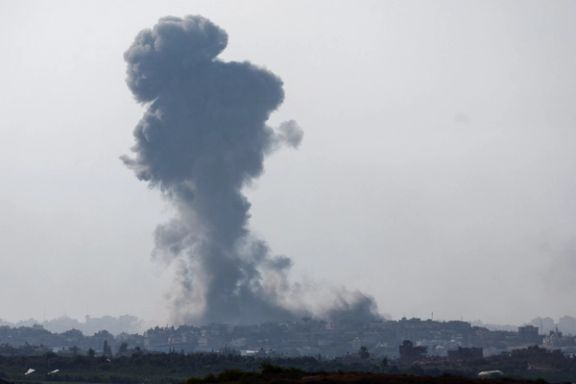
While Iran’s regime has been increasingly insisting that it has no proxy forces in the region, its militant allies have been targeting Israel and US forces.
Houthi forces in Yemen, armed with Iranian weapons, launched drones toward the Israeli port of Eilat on Tuesday that were intercepted over the Red Sea. At the same times, another drone attack targeted the Ain al-Asad air base in Iraq, where US forces are stationed. An Iraqi Islamist group aligned with Iran took responsibility for the strike.
However, Iran’s foreign minister Hossein Amir-Abdollahian told CNN last week that the Islamic Republic was not involved in recent attacks against US bases, insisting that no group takes orders from Tehran, and that Iran has no proxies in the region.
For years, the Iranian regime has been making triumphant statements about its leadership of the “resistance axis”, that includes militant groups, such as the Lebanese Hezbollah, Iraqi Shiite militias, the Houthis in Yemen and the Syrian regime, to name the most prominent forces supported financially and militarily by Tehran.
The Iranian regime has become the focus of attention in the West after the terror attack on Israel by Hamas, another militant group it supports. Although voicing unequivocal support for Hamas, Tehran has been denying any role in the bloody invasion that killed around 1,400 Israelis.
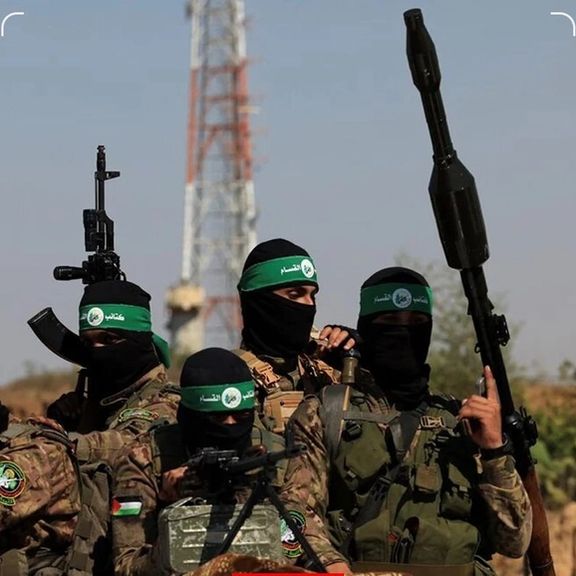
The United States has warned Iran not to escalate the Gaza war and has dispatched substantial naval forces to the region as a deterrent to Tehran and its most powerful proxy, the Hezbollah, which can open a second front against Israel in the north.
Notably, Kayhan, the most hardliner newspaper in Tehran on Tuesday declared that the Islamic Republic will not enter a war for any other nation.
Kayhan stated, “The discourse of the Islamic Revolution is based on awakening and empowering nations. Moreover, it supports and strengthens any oppressed people who desire freedom. However, it never engages in any war on behalf of any other nation and this exact strategy has effectively thwarted various scenarios presented by the United States against Iran in the West Asian region.”
Iran’s strategy since the 1980s, when it helped establish the Hezbollah, has been to use militant and violent groups to build influence around the world and target the interests of Israel and Western countries.
Kayhan is financed by the office of Iran’s ruler Ali Khamenei and is seen as reflecting the views of his office, especially when promulgating hardline foreign policy dictums.
While Hezbollah has had skirmishes with Israeli forces in the past three weeks, it has so far avoided a full-fledged war. Some observers argue that as time goes on and the Israeli ground offensive in Gaza progresses, the opportunity and perhaps the will for the Shiite group to risk total war with Israel decreases.
Israel said on Tuesday that its forces were already attacking Hamas gunmen inside the militants' vast tunnel network in Gaza after Prime Minister Benjamin Netanyahu dismissed calls for a halt to fighting to ease a worsening humanitarian crisis.
The gradual Israeli progress and Hezbollah inaction influence calculations in Tehran, which prefers to use proxies to a limited degree to show support for Hamas but avoid a full escalation that can endanger to regime.
Houthis also escalated clashes with Saudi Arabia in Yemen, after nearly two years of relative calm. They had already fired cruise missiles and drones, potentially toward Israel on October 19 that were intercepted by a US Navy warship.

The only female head coach in the Turkish Women's Basketball Super League has expressed her gratitude towards the strong Iranian women who have shown their support for her.
Selen Erdem has recently gained considerable attention among Iranians, particularly following images of her coaching the Antalya Toroslar basketball team.
In response to the outpouring of support from Iranian women, Erdem shared a heartfelt message, stating, "I am thankful to the strong Iranian women who did not hesitate to support me." She also extended her warm embrace and love from Turkey to the people of Iran, expressing hope for a future meeting in the shortest time possible. She added, "I am very happy to have you. You are extraordinary. Strong women make a better world."
Erdem's distinctive approach and her determination to break barriers in the world of sports have led to comparisons with famous Turkish football coach Fatih Terim, as she continues to inspire and pave the way for more women in the field of coaching.
She is known for her unique approach, which includes running around the court in high-heeled shoes, which she considers "indispensable." During matches, she can be seen taking a knee to give tactical instructions to her players, actively engaging in every aspect of the game.
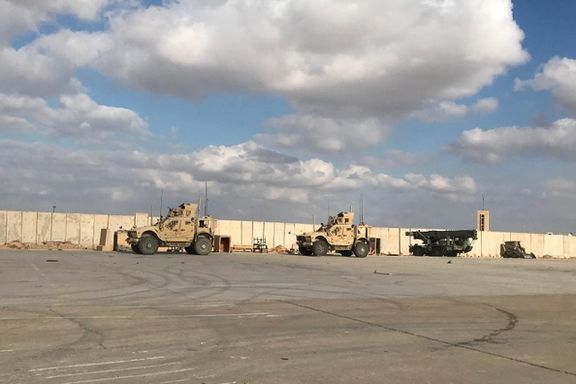
Two armed drones targeted Iraq’s Ain al-Asad airbase, which hosts US forces in western Iraq, a security source and a government source told Reuters on Tuesday.
The attack in the early hours of Tuesday, did not cause casualties or damage, the sources said.
There has been an increase in attacks on US forces since the conflict in Israel broke out on Oct. 7 and Iraqi armed groups acting as Iran’s proxies threatened to target US interests with missiles and drones if Washington intervened to support Israel against Hamas in Gaza.
A group called the "Islamic resistance in Iraq" has endorsed Tuesday's attack, and also took responsibility for previous strikes. Iran's Revolutionary Guard media has been amplifying the group's statements.
President Joe Biden and other US officials have warned Iran and its allies to not get involved in the Israel-Hamas war.
So far, Iran’s proxy groups have launched more than 20 attacks against US bases in Iraq and Syria. On Friday, the US responded by bombing two warehouses said to belong to Iran’s Revolutionary Guard in Syria, however that has not deterred the militant groups.
On Monday, four Katyusha rockets were fired at Iraq's Ain al-Asad air base, but it was not clear if the attacks caused damage or casualties.
The Iranian regime welcomed the October 7 terror attack by Hamas, organizing street celebration hours after the news broke. Iranian officials have since expressed full support for Hamas as more evidence has emerged of Tehran’s military and financial support for the militant Palestinian group.